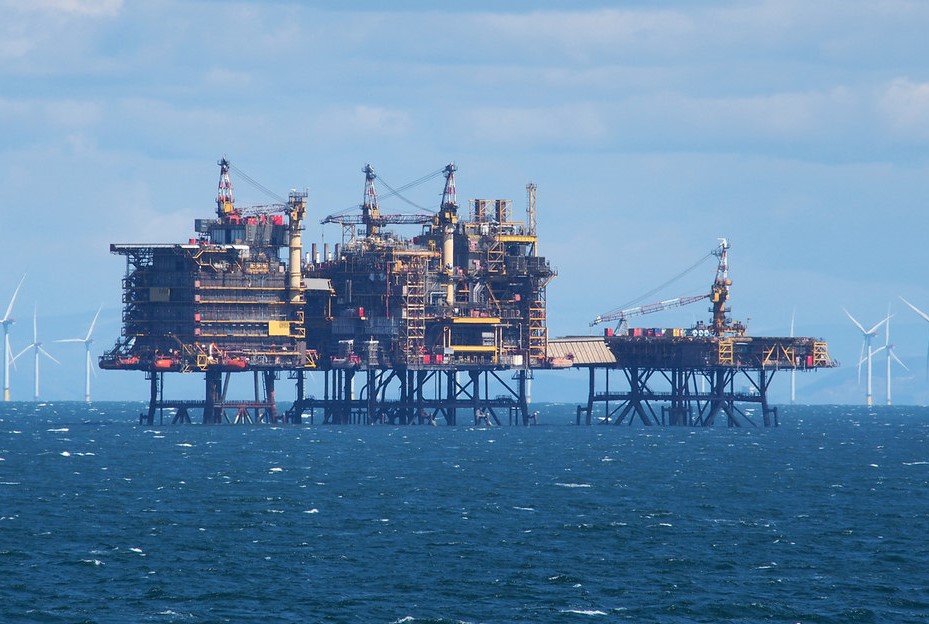Oil and gas companies continue to reward their top executives for increases in fossil fuel production or reserves, analysis shows, with European majors coming out worse than their US counterparts.
A report released this week by non-profit thinktank Carbon Tracker finds that 27 of the 30 largest listed oil and gas companies in Europe, North America and Asia-Pacific still financially reward executives for producing more fossil fuels, despite the climate goals of many of these companies.
“We started covering this issue in 2017, and the progress since then has been grindingly slow,” says Axel Dalman, an analyst in Carbon Tracker’s oil, gas & mining team and author of the report. “It doesn’t seem like they’re taking it very seriously.”
Dalman analysed the proportion of executive pay determined by “direct growth” metrics such as a rise in fossil fuel production or reserves, and found a range of CEO pay packets linked to these metrics, from just a few percent up to 33 percent of total pay, at Canadian Natural Resources.
“If you are giving 20 percent of the bonus in return for increasing fossil fuel production, then it’s very likely that the CEO will do their darnedest to increase fossil fuel production,” says Dalman. “And that’s not going to be good for shareholders, it’s not going to be good for the climate.”
But even a small percentage suggests “an attachment to the old ways” of competing through size rather than returns, the report argues.
Contradicting climate targets
Carbon Tracker also found a mismatch between these executive compensation policies and how well companies are doing on climate in other areas. In particular, it finds that all European companies with net zero ambitions still incentivise executives to grow oil and gas volumes to some extent.
Overall, European majors ranked worse than US companies, the report said, even though they generally have stronger climate policies elsewhere, such as emissions goals and project portfolios more aligned with the Paris Agreement. For example, Italian oil and gas firm Eni recently announced an “ambitious” net zero strategy but still decided to keep the fossil fuel production targets in its CEO bonus, says Dalman.
Like what you’re reading? Become a DeSmog patron today!
Commenting on the findings, Jeanne Martin, senior campaign manager at Share Action, said oil and gas companies seem to be suffering from “cognitive dissonance” by setting goals to be net zero by 2050 while also paying executives to prioritise fossil fuel expansion.
“A deeper rethink is needed,” she added. “Investors need to call on oil and gas companies to exclude indirect and direct fossil fuel growth metrics from their remuneration packages, and vote against those that don’t.”
Inadequate ‘green incentives’
Some companies have begun to introduce “green incentives” in their remuneration packages, Martin says, but these tend to focus on the operational emissions of companies and are outweighed overall by other less climate-friendly performance indicators.
Pascoe Sabido, a researcher and campaigner at Corporate Europe Observatory, argued the findings show that European oil and gas majors have no intention of moving away from fossil fuels.
“They are positively incentivising their climate-killing business models,” he said. “If we want to transform our energy system in the little time we still have available, we need to keep the fossil fuel industry and its lobbyists as far away from our decision makers as possible.”
Even companies that are not looking to transition into clean energy and taking a so-called “last man standing” approach risk stranding assets by focusing on growth rather than value, the report argues. It advises shareholders to push for efficiency over absolute increases, incentives in line with company climate goals and more transparency on how pay is distributed.
“We’re not saying that companies should not reward their CEOs for better performance,” says Dalman. “But they should just think harder about which particular targets they are using and what sort of behaviours they drive.”
Photo credit: Rossographer/Geograph/CC BY–SA 2.0
Subscribe to our newsletter
Stay up to date with DeSmog news and alerts







